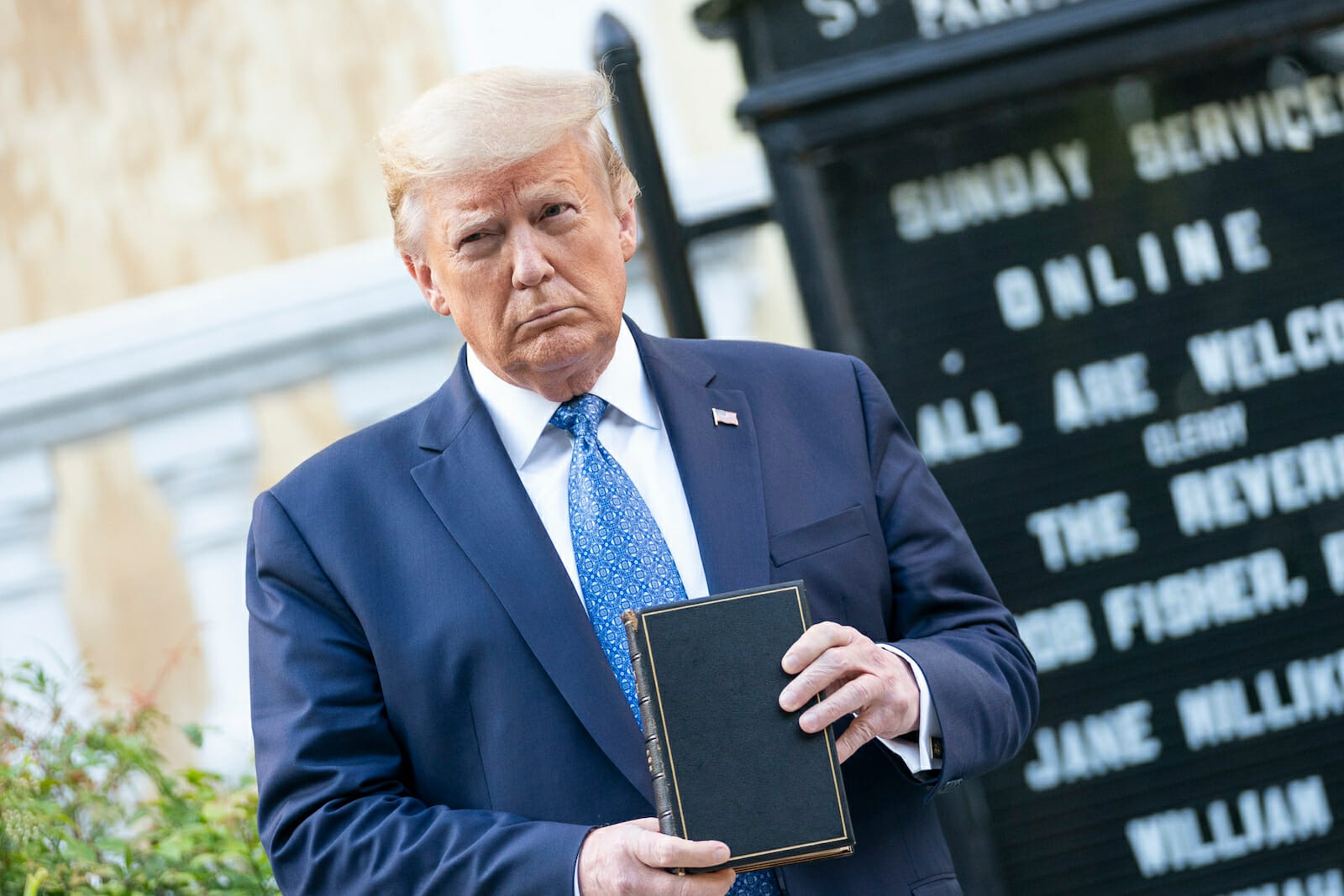
China and Hong Kong: Is the U.S. Raising another False Flag?
The United States has a tried and true tradition, dating back centuries, of inventing narratives to start wars. These lies, often referred to as false flags, are always something the citizenry supports with the help of nonstop media coverage. Whether it is ‘humanitarian purposes,’ used as the excuse to invade and destroy Libya; protecting U.S. soldiers who were alleged to have been attacked (they weren’t) in the Gulf of Tonkin off the coast of Vietnam, or protecting U.S. medical students in Haiti (they did not need or want protection, and the U.S. only invaded after the U.S. asked the Organization of Eastern Caribbean States to ask the U.S. to intervene), there is always some purported reason for the ‘land of the free and the home of the brave’ to go about killing countless innocent people.
Beset by numerous problems at home, President Donald Trump is looking for a distraction. What can be more distracting to the populace than war? And China looks like it might be Trump’s opportunity.
Let us explore the problems facing Trump.
Never particularly popular, having lost the popular vote and only becoming president due to the odd electoral college, Trump and his administration completely bungled the U.S. response to the coronavirus pandemic, costing over a hundred thousand lives and climbing. The country shut down to prevent the spread of coronavirus, elevating unemployment levels to those not seen since the Great Depression. Then, yet another white policeman murdered another unarmed, defenseless black man, and civil unrest erupted coast to coast. Rather than offering conciliatory statements, Trump threatened protesters with ‘vicious dogs’ and ‘weapons unlike any’ he’d ever seen. So much for calming troubled waters.
With the presidential election only five months away, these issues plaguing him, and his impeachment not a very distant memory, something must be done to rally the nation around him and help the citizenry forget their unemployment, deceased loved ones, and systemic racism. A war might be just the thing.
And China is acting in a manner very displeasing to Donald Trump, who has long eyed China with mistrust. The government of China, in response to pro-democracy demonstrations in Hong Kong, has passed laws restricting the autonomy under which Hong Kong has operated for two decades. The U.S. supported those protesters (does anyone see the irony of this?), and this would not be the first time the U.S. invaded a nation to force its brand of democracy down an unwilling throat.
An invasion of China would arguably be the most fool-hardy action by Trump in his three and a half years of fool-hardy actions. Hopefully, his closest advisors would see that, even if he can’t. But there are many layers of aggression: he could sanction China, which, as is generally the case with U.S. sanctions, would hurt the people and have no impact on the government. More likely he would send U.S. destroyers to threaten China’s coast; that is a more graphically pleasing action than sanctions. It would be simplistic to say that it is only China’s crackdown on Hong Kong that would motivate the U.S. to take some kind of action against China. Trump’s love affair with Xi Jinping has had its ups and downs, particularly in the economic sphere. He blames China for coronavirus, implying that it was developed as germ warfare which ran amok, calling it the “Wuhan” or “China” virus.
So he could either invade China, or send a show of force as a threatening measure. But would a U.S. president be so foolish as to start a war with a large, powerful, nuclear-armed nation? Would that not set the stage for worldwide destruction? In Trump’s view, as long as it shows him as a strong leader and gets him re-elected, is any price too high to pay?
Some people might say it could never happen, but we must look at the lies and false flags that have caused earlier wars. In 1990, after Iraq annexed Kuwait, the U.S. populace was convinced to support the invasion of Iraq after a seemingly vulnerable young girl testified before Congress that as a hospital volunteer in Kuwait, she saw Iraq soldiers stealing incubators from a hospital, and leaving the babies who were in them on the floor to die. Of course, it was soon learned that she was the daughter of the Kuwaiti ambassador to the U.S., she had never been a volunteer (although she later admitted that she had once very briefly visited the hospital), and her testimony was arranged by a public relations firm. Afghanistan was invaded ostensibly because the government would not surrender Osama bin Laden. Yet, the government was willing to surrender him, just not to the United States where they were confident he would not get a fair trial.
And now, perhaps, we have China, and the false flags of the origins of coronavirus in Wuhan, “protecting democracy” in Hong Kong, and ongoing rising economic tensions. There are, however, two major and important differences between current threats against China and the wars mentioned above: China is a very powerful country, perhaps second only to the U.S., and the U.S. is headed by an erratic and volatile, inexperienced leader. Even when George Bush decided to invade Iraq in 2003, against the advice of many U.S. allies, and being told repeatedly that United Nations weapons inspectors were combing the country and finding no weapons of mass destruction, he at least targeted a nation that couldn’t do anywhere near the damage that China can do.
Military leaders in the U.S. are resisting Trump’s calls to send the military into the streets to restore order; perhaps they will also resist any efforts he might make to start a nuclear war.
In the past, some of Trump’s advisors have been referred to as the adults in the room. They are in short supply now, and the result could be catastrophic.

